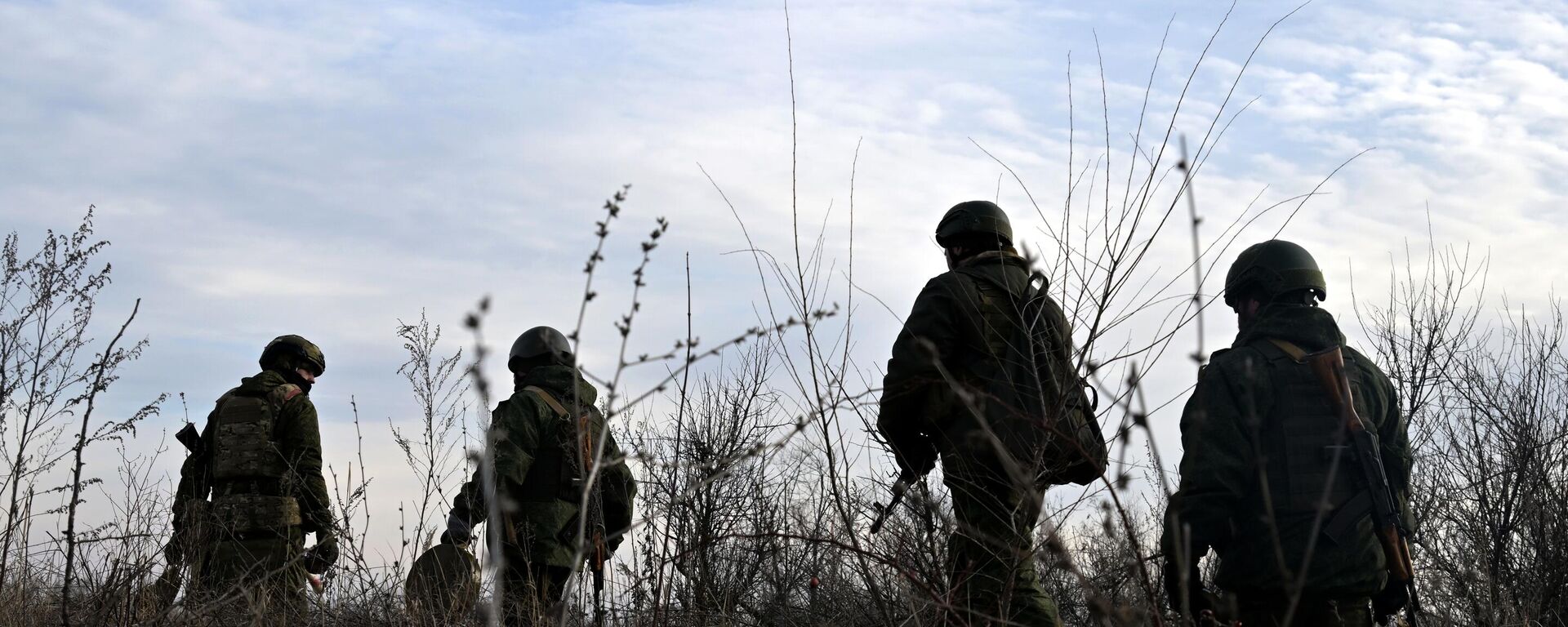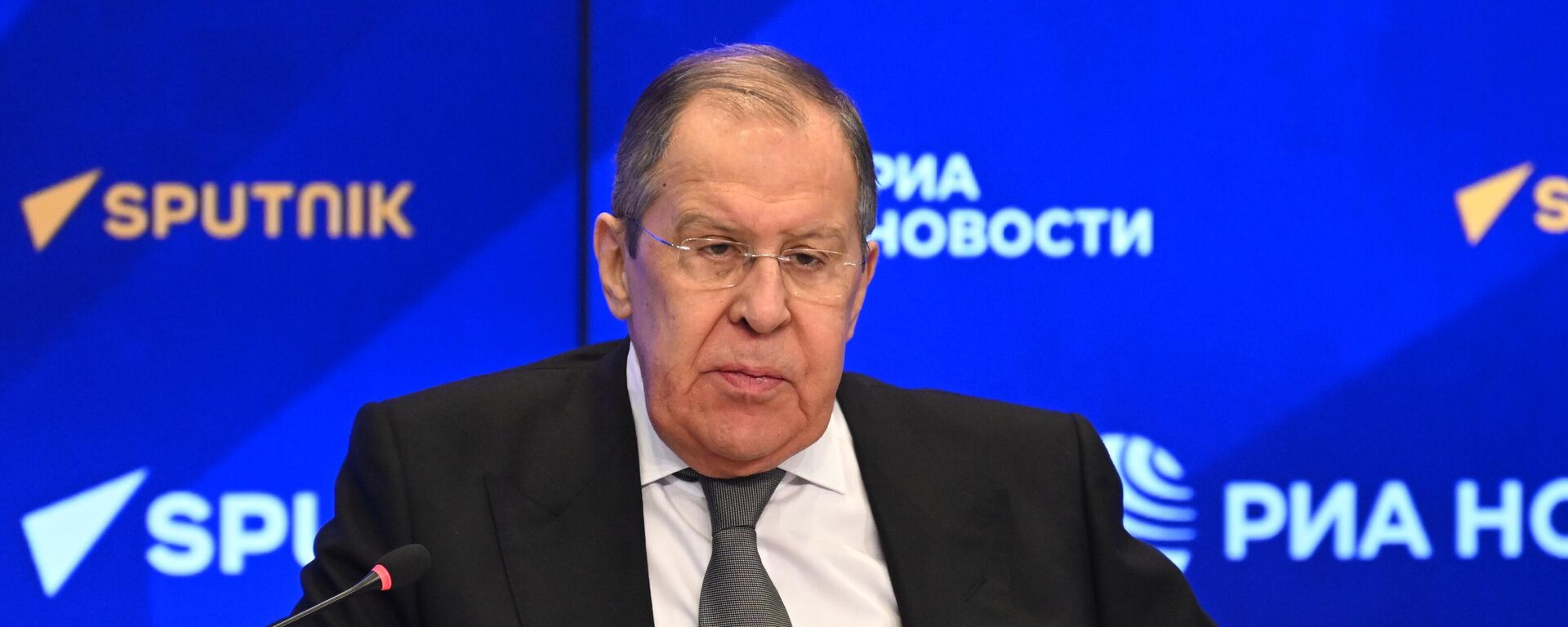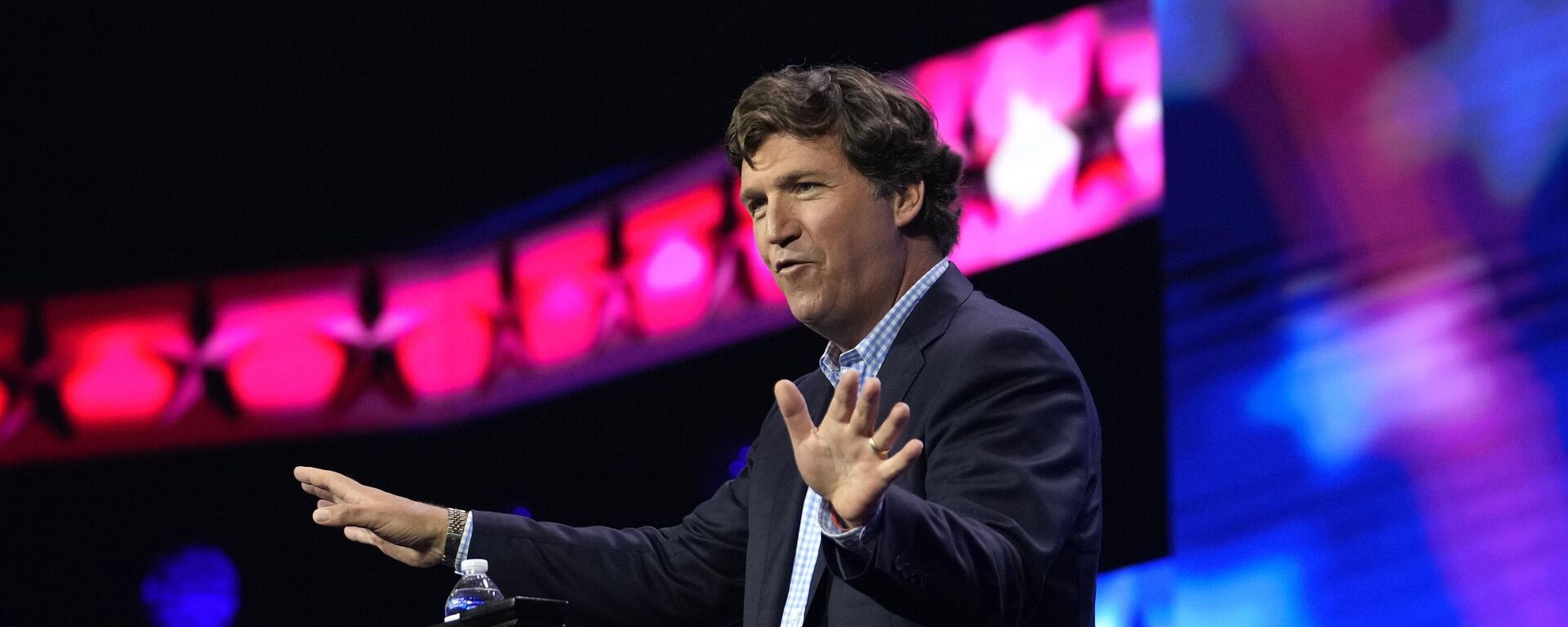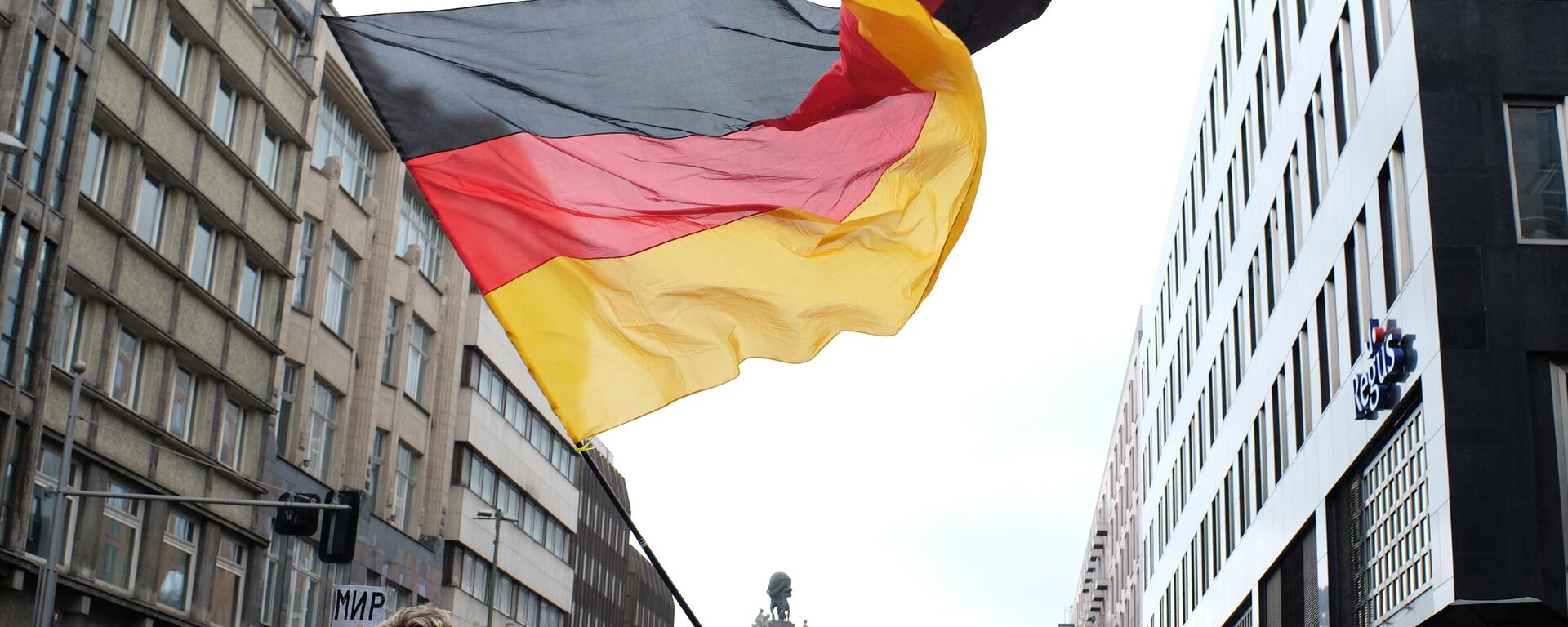Here’s Why Zelensky Wants Separate Security Pacts With France and Germany
15:57 GMT 16.02.2024 (Updated: 15:58 GMT 16.02.2024)
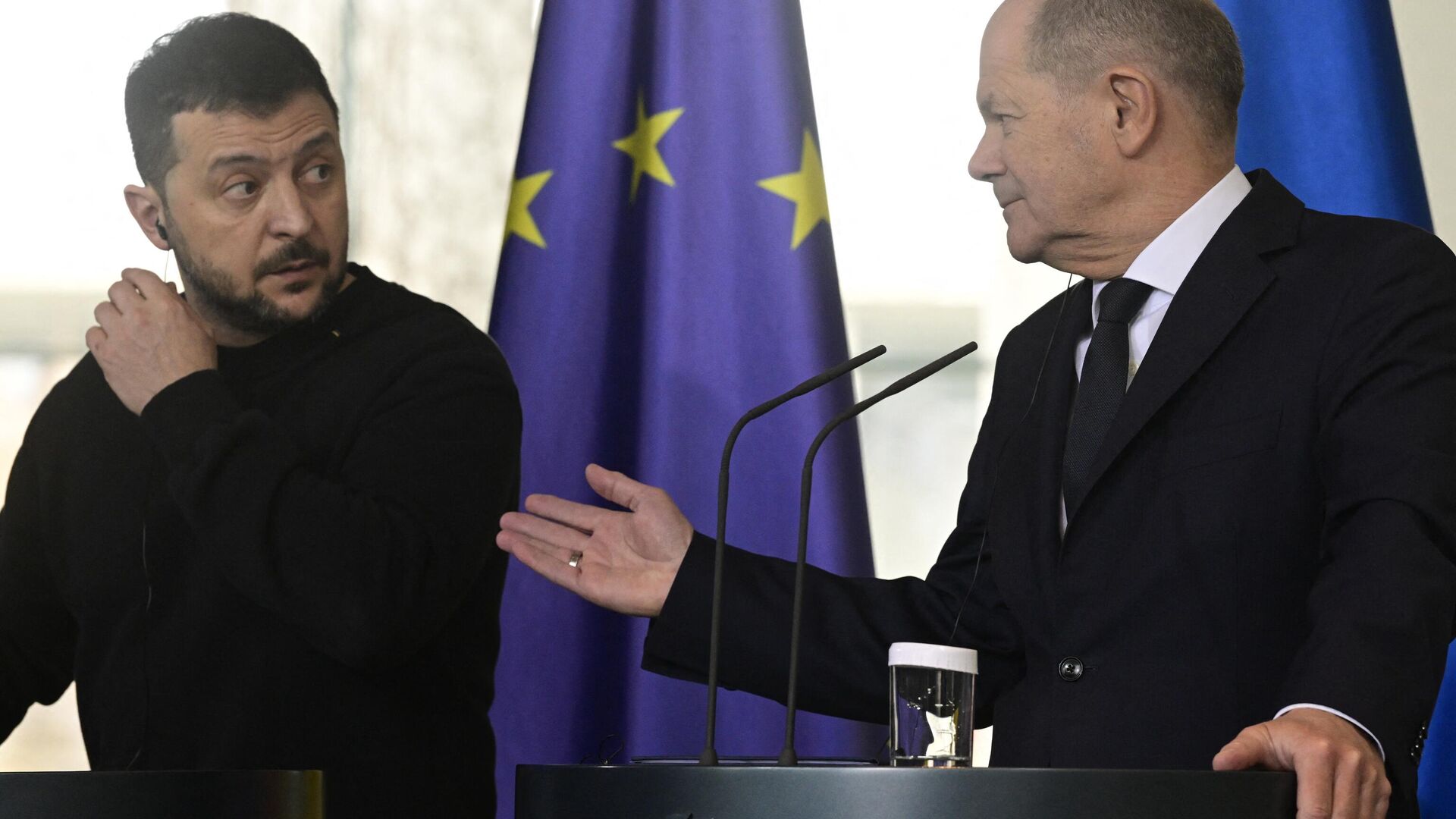
© AFP 2023 / JOHN MACDOUGALL
Subscribe
Ukraine’s president traveled to Germany and France on Friday to sign security pacts with the pair of European powers amid fading US military and financial assistance to Kiev. Sputnik asked a leading Swedish geopolitics and defense affairs expert about Ukraine’s motivations on the one hand and those of the Europeans on the other.
Volodymyr Zelensky embarked on another of his globetrotting trips this week, traveling to Berlin Friday to sign a bilateral security pact with German Chancellor Olaf Scholz before continuing on to Paris for talks with his French counterpart, Emmanuel Macron, where a second bilateral security agreement is expected. The trip comes one day ahead of the start of the Munich Security Conference, which Zelensky is also expected to attend in person this year.
The bilateral security pact idea, first floated at NATO’s Vilnius Summit last July, is eventually expected to include other members of the alliance as well. Before Germany and France, the Zelensky regime had signed a similar agreement with the UK in January, committing London to timely and continuous military assistance to Kiev over the coming ten years.
Zelensky’s whirlwind tour of Europe comes amid faltering US support for Kiev, with a $61 billion US aid package stuck in the Congress amid accusations from House Republicans that the Biden administration is more interested in Ukraine’s border than the US’s own southern frontier with Mexico.
It also comes amid growing difficulties for Ukrainian troops trying to hold onto frontline positions amid increasingly powerful Russian assaults, including a reported partial withdrawal from the heavily fortified, Ukrainian-occupied Donbass city of Avdeyevka this week.
The purpose of the bilateral pacts is to have some kind of interim support in place as Kiev’s quest to join NATO drags on, and to ensure that Ukraine’s leaders continue to feel that they will “have long-term support from different NATO countries,” says Mikael Valtersson, a former Swedish Armed Forces officer and chief of staff of the Sweden Democrats Party.
“The NATO process will be very long. It might be forever. When they are ‘in the waiting room’, they will have maybe ten years. Ukraine wants to have these security agreements until they become members. But we don’t know if they will ever become members,” Valtersson told Sputnik.
In the meantime, Kiev hopes to use bilateral security deals with bloc members to prevent the collapse of its war effort.
As for the pacts’ practical implications, Valtersson suggests they will basically continue what’s happening today – the delivery of more military and economic aid to Kiev, but now on a more formalized basis.
“They are going to do the same thing as they’re doing today – that is, giving military and economic support if Ukraine is in some kind of trouble. This isn’t coming out of the blue. At the NATO summit in Vilnius, we saw that they talked about this – that they would have some kind of security agreements [with Kiev] before they became members.”
At the same time, Valtersson said that “it’s also an easy way out for NATO countries” when it comes to the proxy war quagmire with Russia. “They’ve already promised that they will do a lot for Ukraine in the coming ten years but what’s important for Ukraine is what happens over the next year,” the analyst emphasized.
The Swedish observer also sees the latent rivalry between London and Brussels as another potential factor, with Berlin and Paris wanting to show that the EU remains just as committed to Kiev’s cause, especially amid flagging American economic support as $61 billion in funding remains stuck in Congress.
“The European countries – the major powers, and especially Germany and the United Kingdom, have said that they must keep supporting Ukraine even if the US doesn’t continue support. It’s hard to get support from the US right now, and if Trump will become president in the elections, it will become even harder. I believe the US will stop supporting Ukraine. So, the European countries are talking about taking over the US role. It’s very hard. It means a lot of money, and moreover, they can’t replace the United States when it comes to military means because they have no reserves,” the observer said, adding that amid the atmosphere of tensions dominating Russia-European relations, the bilateral pacts are designed to prepare for a “continued Cold War with Russia” for years to come.
Of course, Valtersson stressed, all of these bilateral agreements will be subject to the political will of the leaderships of countries implementing them, with their signatories vulnerable to opposition forces seeking a strategic realignment when it comes to the Ukrainian crisis and ties with Russia.
“In France, Marine Le Pen is ahead of Macron in the opinion polls. Macron can’t be reelected. That doesn’t say much, but another candidate from his party might be less popular than he is,” Valtersson said.
The same goes for Germany, where support for Chancellor Scholz’s Traffic Light Coalition has reached historic lows as Berlin’s strategy of aid for Kiev and economic sanctions war against Russia continues to backfire.
“So there might be new politicians in government in different countries in Europe and then these agreements will be void and have no importance. But for the time being, the current leadership of the three major powers in Europe are trying to convey their support for Ukraine, and that Russia is a long-term ‘threat’ to Europe,” Valtersson said.
In any event, the Swedish defense expert said he doesn’t exactly take much stock in the Western alliance’s commitments to Kiev, especially as far as defense assistance is concerned, citing the recent failed promise to deliver one million artillery shells.
“It’s very easy to say something. It’s much harder to realize and deliver on it. If I remember correctly, maybe 300,000 artillery rounds have been delivered to Ukraine, and [the Europeans] have very limited capability to produce and deliver more. It will be a long stretch to get the drone production [promised by a Latvian-led coalition, ed.] up. You could always buy cheap civilian drones but the development of drones in warfare is moving to larger drones with higher capacity. So I don’t know if the Ukrainian side would be happy if they got one million various small and cheap drones,” the observer said, pointing to the growing capabilities of Russia’s electronic warfare technology, which threaten make short work of any cheap, off-the-shelf UAVs.

